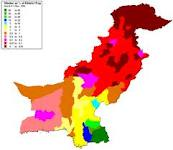 Human rights of the ordinary people are grossly abused in every part of the world. The failure of the state governments to deal with violation of human rights is unfortunately an international phenomena. This is more true of countries with large share of uneducated, poor and defenseless people and, understandably, in countries which are governed by age old religious principles and laws. Millions of men, women and children are grossly abused and disregarded merely because of their religious and ethnic background.
Human rights of the ordinary people are grossly abused in every part of the world. The failure of the state governments to deal with violation of human rights is unfortunately an international phenomena. This is more true of countries with large share of uneducated, poor and defenseless people and, understandably, in countries which are governed by age old religious principles and laws. Millions of men, women and children are grossly abused and disregarded merely because of their religious and ethnic background.
Despite the promises of universal declaration of human rights that every person shall have the right to have a dignified and respectful standard of living without any discrimination on the basis of sex, caste, language and religion, the ability of the state to protect the human rights in several countries is in crisis. The very credibility of the international human rights system is at stake and its ability to protect the human right of minorities, women and children is being questioned all over the world.
The situation of human rights violations in Pakistan is probably worse. As a matter of fact there is a statutory protection and support to the violations of human rights of religious minorities in Pakistan.
The political structure of Pakistan is based on parliamentary democracy. Starting as a secular democracy, Pakistan has gradually moved close to being a theocratic state. Islam is the state religion of the country according to which the sovereignty belongs to its God alone. The parliament of Pakistan exercises its authority within the limits prescribed by Allah.
No law which is repugnant to Islamic injunctions can be enacted and all the existing laws are to be brought in conformity with these injunctions. The Federal Shariat Court can strike down any law on the ground of being repugnant to Islam. It can also suggest amendments in statutes. The constitution also provides for a council of Islamic Ideology comprising religious scholars to advise the government on Islamisation of laws, state policies and practices.
2: RELIGIOUS DEMOGRAPHY OF PAKISTAN
The minorities which formed 23 percent of the population at the time of the partition of India, in 1947, has been reduced to about to four percent. The approximate population of Pakistan is 150 million. According to the Census taken in 1998, 96 percent of the population are Muslims, 2.02 percent are Hindus, 1.69 percent are Christians and 0.35 percent are others, which include Sikh, Ahmadis and other religious groups. The majority of Muslims in Pakistan are Sunnis.
As per the Census, Hindus are the largest minorities group in Pakistan with population of 2.8 million, Christian 2.09 million, Ahmadis 286,000, Buddhists 20,000, Sikhs 20,000, Parsis 20,000 and Bahai’is 30,000. There are many religious groups which do not want to disclose their religious affiliation due to social pressure.
3: RELIGIOUS PRACTICE
Many varieties of Hinduism are practiced in Pakistan. There are approximately 1500 Hindu temples and shrines in Sindh, 500 in Baluchistan and 750 in Punjab Province. Most of them are unattended and ruined because of the collapse of the Hindu population in the country. The Sikh community holds ceremonial gatherings at places of Sikh pilgrimage. The Christian community is very organised and regular prayers are being offered at all the churches situated in Pakistan.
4. LAW AND THE GOVERNMENT
The policy of the Government of the Pakistan does not ensure equal protection to the members of majority and minority faiths. All citizens, regardless to their religious affiliation are subject to the provisions of Shariat (Islamic Law). The system of justice has several overlapping and confronting jurisdictions.
The federal Shariat Court and the Shariat bench of Supreme Court serve as the appellate court for certain convictions in Hadood ordinances. The judges and attorney in these courts must be Muslim only. The federal Shariat Court can overturn any legislation found to be inconsistent with the tenets of Islam.
In Malkhand and Kahistan division of North-West Frontier Province (NWFP), the ordinances require that ‘all cases, suits, enquires, matters and proceedings shall be decided in accordance with Shariat.’
The penal code incorporates the doctrine of Quiyas (eye for an eye) and Diyat (blood money). The Hindu and Christian activists allege if a Muslim kills a non-Muslim, the killer can redress the crime by paying Diyat to the victim’s family. However a non-Muslim who kills a Muslim does not have or enjoy that option and must face the death penalty.
The Hadood ordinances, enacted to make penal laws more Islamic, provide harsh punishments for violation of Shariat including death penalty by stoning for unlawful sexual relations and amputation for other crimes.
There are special provisions and rule of evidence in the cases involving Hadd (Quranic punishments). These special provisions are discriminatory to minority communities. In the cases involving Hadd, the law of evidence require that a non-Muslims may testify if the victim is also non-Muslim but the statement of women and non-Muslim is not admissible in evidence if the victim is a Muslim.
All extra-marital sexual relations are violation of Islamic law. According to Hadood Ordinances if a Muslim or other woman can not prove the absence of consent in a rape case, she may be charged for adultery. In majority of rape


